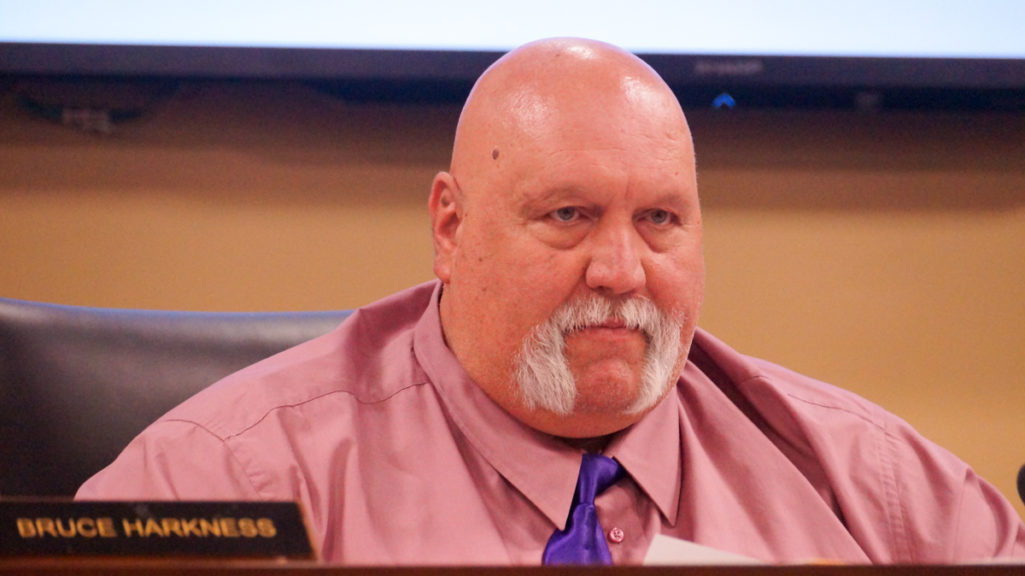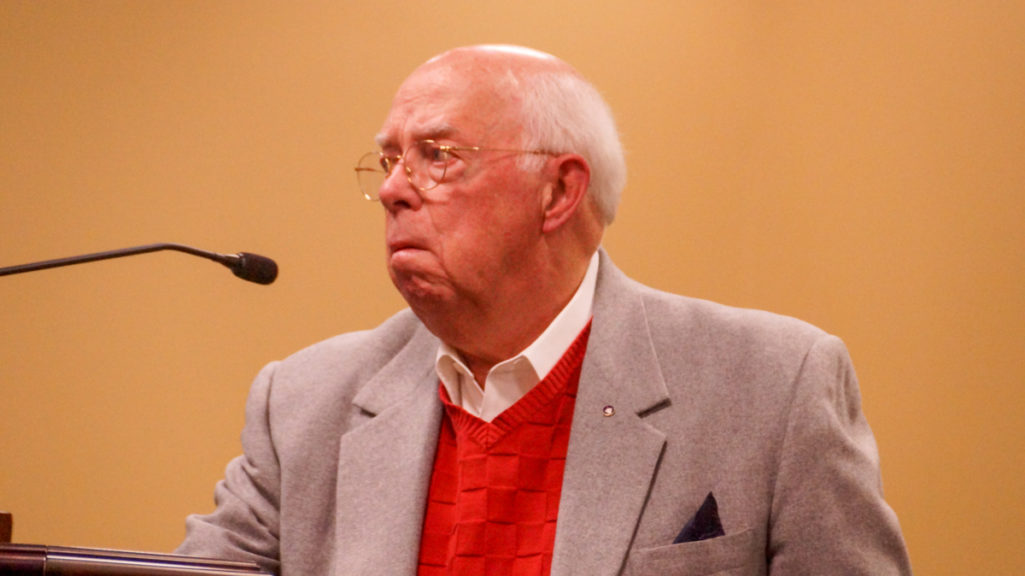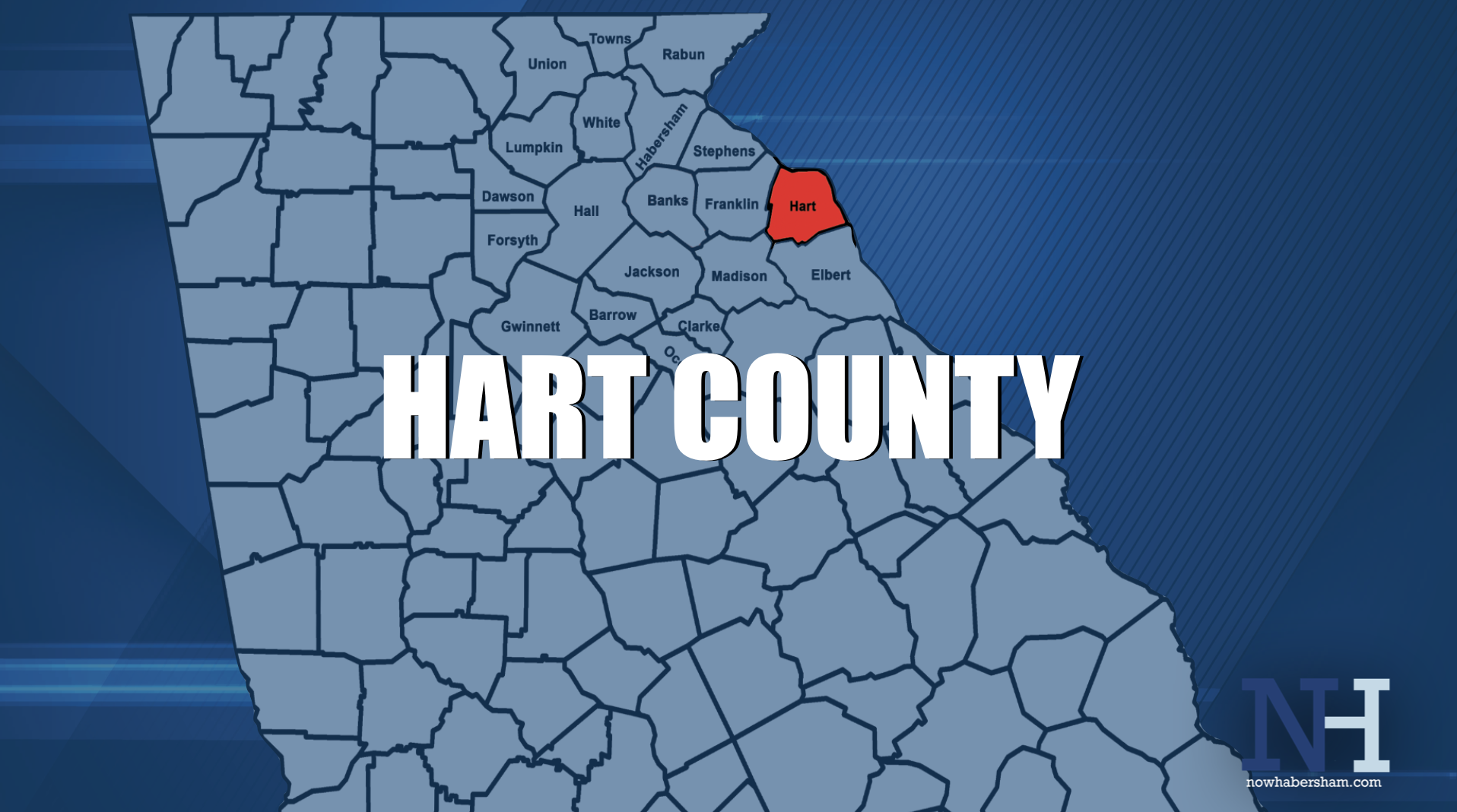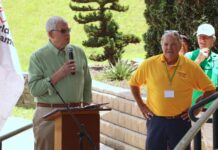
The Habersham County Board of Commissioners announced Thursday that moving forward, they would strictly enforce their rules and limitations to public comment.
“It is the firm belief of the Habersham County Board of Commissioners that transparency and public service remain a top priority in all public meetings,” Commission Chairman Bruce Palmer read from a statement during the meeting. “It is for this reason that the commission affords members of the public the privilege of sharing their thoughts and concerns in the form of public comment during the commission meetings. In recent months, it has become apparent that the rules surrounding public comments need clarification so that this privilege remains a tool for progress and productive discussion.”
The statement comes on the heels of attorney Doug McDonald calling on County Manager Alicia Vaughn to publicly state why she abruptly resigned from her job as Catoosa County manager during public comment.

“Since county staff members are unable to participate in public comments, complaints regarding individual members of the county staff should be investigated through the proper internal channels, not through a public forum in which they are unable to provide rebuttal or defense to their character,” Palmer said.
McDonald has made many controversial public comments criticizing Habersham County government during public comment in the past, and after Thursday’s announcement, came forward to comment.
“The matter that was read into the record tonight . . . is very dangerous in the sense that it is unconstitutional,” McDonald said. “I have spent 50 years of my life as a lawyer studying the law and specializing in constitutional law, and I’m here to tell you tonight that a content-based boundary document that prohibits the things that this document read tonight attempts to prohibit is unconstitutional.”
Palmer says he consulted with Georgia’s County Association and Habersham County Attorney Donnie Hunt, and that they advised that the rules were not unconstitutional.

“Citizens have an enormous United States constitutional right of freedom of speech, protection [of] directing speech about public issues to those who govern the county, and who use our county money and spend our tax dollars,” McDonald said. “Free speech exists during public comment times. It is the only time the public can come and speak to five county commissioners at one time.”
Palmer says that public comment is not a required portion of commission meetings, and limiting it can’t be unconstitutional.
“Public comments are not a required portion [of meetings], so if they’re not required, how can it be unconstitutional to kind of limit [them]?” Palmer told Now Habersham. “Making slanderous statements technically is illegal, and our rules have been in effect.”
The HCBOC Rules of Procedure were last amended on March 15, 2021, to include limitations to public comment, and include barring an individual from public comment due to “improper conduct.” At the beginning of the public comment portion of commission meetings, speakers have been told for years that “derogatory” and “offensive” statements are not allowed.
McDonald argues that language such as a “derogatory statement” and “an offensive statement” do not have clear definitions and need to be clarified.
“The government cannot silence speakers at public comment times, if a county employee gives up their right to come and speak when they become a county employee, that should not prohibit taxpayers, citizens, from being able to talk about them in a public meeting,” McDonald said.
The rules also allow for barring citizens from further public comment if their conduct is “deemed out of order” from the commission. Palmer says these rules will be enforced moving forward.
a. A person may be barred from further speaking before the Commission in that meeting if his/her conduct is deemed out of order;
b. A person, once barred for improper conduct, shall not be permitted to continue or again address the Commission in that meeting unless a majority vote of the Commission allows;
c. In the event the speaker thus barred fails to obey the ruling, the Chair may take such action as is deemed appropriate, including the removal of such person from the assembly;
d. The Chairman may bar a person from addressing Commission meetings for up to sixty (60) days for improper conduct;
e. A person barred by the Commission for this period may request a hearing, by written request, to the Chair stating the reason(s) for a reversal of the decision.
Palmer says that those rules have not been amended since last year, and that the announcement he read only further clarified the role of the county manager and board of commissioners.
“I did put that statement in there just to clarify to our public what we’re responsible for,” Palmer said. “A lot of people have the misinterpretation that . . . ‘I go talk to them [commissioners] and they’re going to fix my problem, they’re responsible for everything,’ and it’s really not that way. And that was voted on by the citizens in Habersham county in the past when we went to a manager form of government with five commissioners.”






